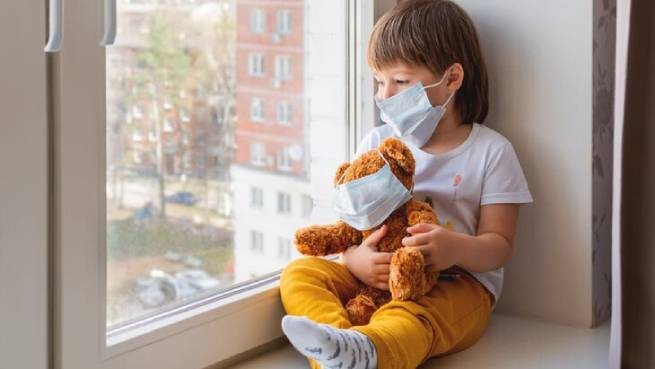Nasal cell activity, which decreases with age, helps children cope better with COVID-19, a study has found.
The type of cells we have changes as we age. The milder course of coronavirus in children can be explained by the fact that the body's first line of defense – nasal cells – works better than in older people, who are most often susceptible to severe disease. Scientists came to this conclusion based on the results of the study, published in Nature Microbiology.
Scientists have concentrated on how tells MedicalXpress, on the early effects of SARS-CoV-2 infection on human epithelial cells. They took samples from healthy children (0 to 11 years), adults (30-50 years) and older adults (over 70). These cells were grown using special methods and obtained different types.
The single-cell RNA sequencing method helped scientists identify 24 different types of epithelial cells. Cell cultures from each age group were then either truly infected with SARS-CoV-2 or mock-infected.
Three days later, the children's nasal epithelial cells responded quickly: they increased the level of interferon (the body's antiviral defense), limiting the spread of the virus. However, this reaction was significantly weaker in older study participants. The researchers also found that nasal epithelial cells in older people produced more infectious viral particles and were more likely to be damaged. Project leader Claire Smith, associate professor at the Institute of Child Health, notes:
“The study shows how the type of cells found in the nose changes with age and affects the ability to fight SARS. CoV-2 infection may be critical to the development of effective antiviral treatments tailored to different age groups, especially for older people who are at greater risk of severe COVID-19.”
The strong reaction in children may explain why younger people typically experience milder symptoms. But the older a person gets, the greater the damage and the faster the virus replicates, which likely leads to a more severe course of the disease. The risk of mortality among those over 85 who are infected remains high, despite vaccinations and improved treatment options. Study co-author Dr Mark Nikolic says:
“It's amazing that when we take immune cells from nasal samples and leave only the grown nasal epithelial cells, we can still identify age-related differences in our body's response to SARS-CoV-2 between young and old people, to explain why children are generally protected from severe COVID-19.”
Dr. Smith notes that understanding cellular differences early in infection is just the beginning. Scientists plan to investigate the long-term consequences of these cellular changes and test therapeutic interventions. The researchers suggest it is now necessary to look at how aging affects the body's response to other viral infections.
Previously, our publication wrote about a study that showed: cardiac arrest in young people is not associated with COVID-19 vaccination.







More Stories
Reuters: Pentagon spread fake news about Chinese coronavirus vaccine
Reuters: Pentagon conducted disinformation campaign against Chinese vaccine to undermine China's position
A. Fauci's confession on the Covid-19 case: they imprisoned all of humanity with false evidence – there was no threat